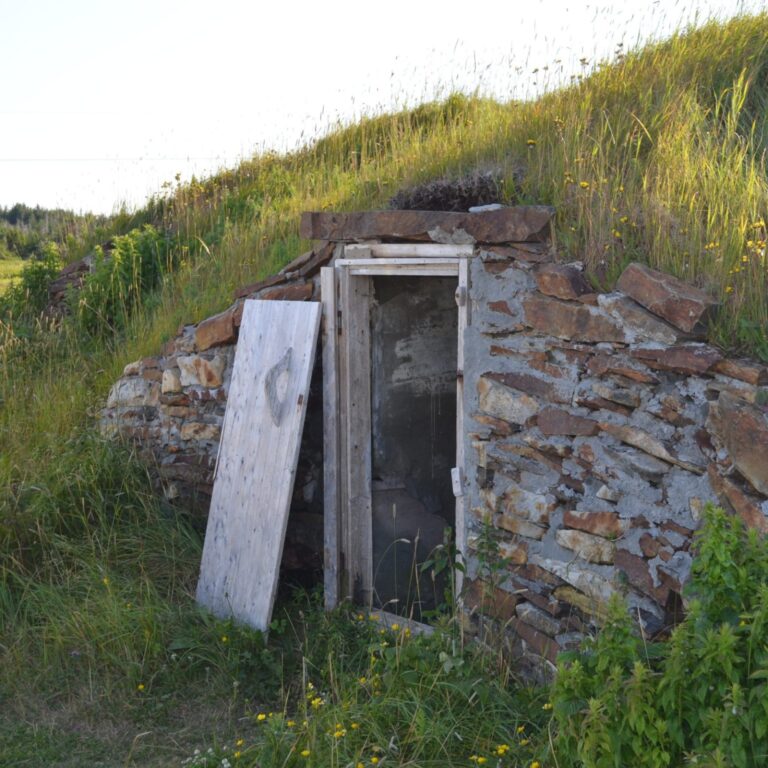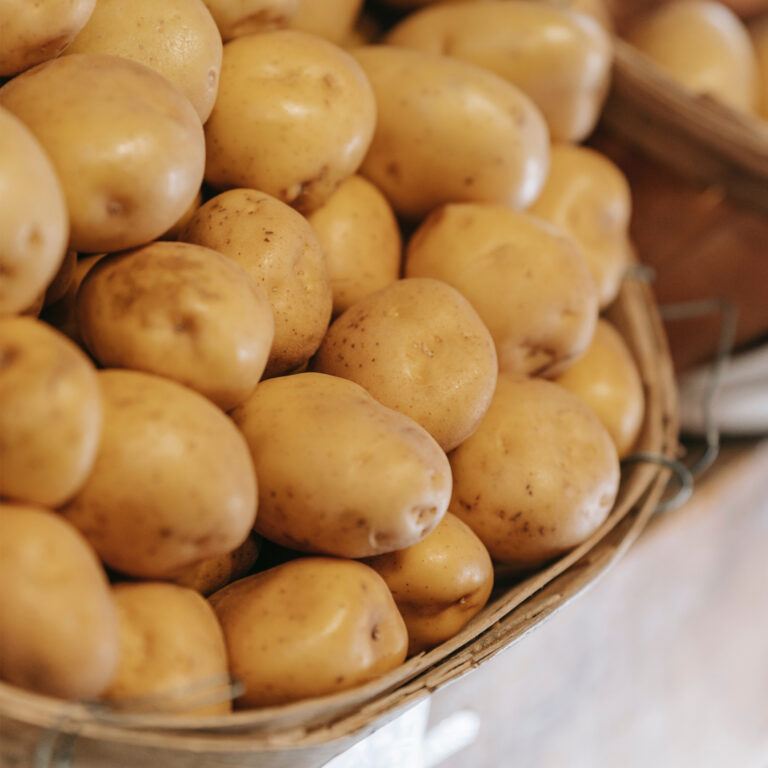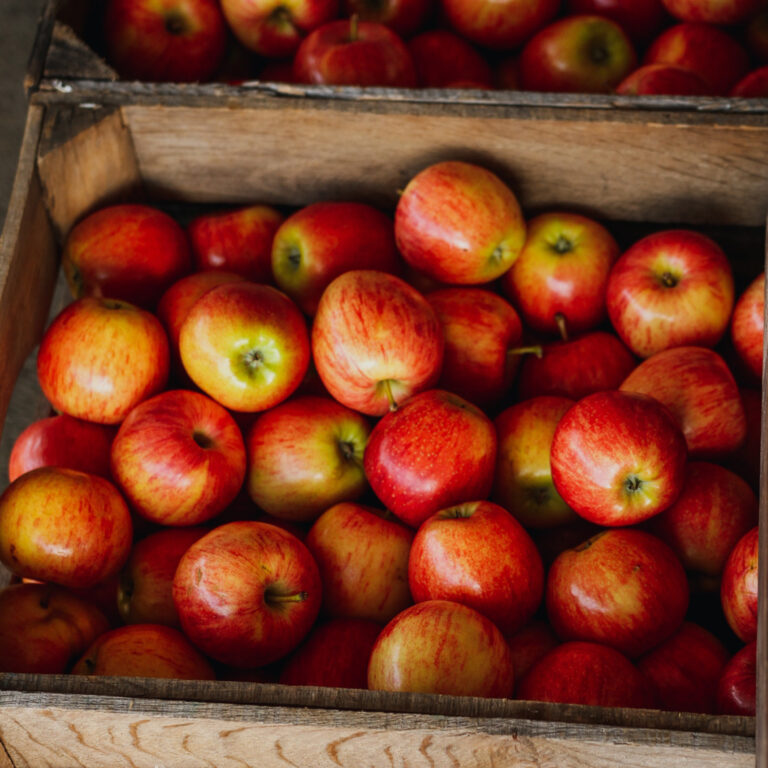Root cellars might be thought of as a quaint artifact of early food preservation techniques from a bygone age, but they continue to be a great option for keeping produce fresh on a working homestead, particularly one that might not make use of modern refrigeration technology.

Adaptable to pretty much any kind of home or property, they are definitely viable in most environments. So, what kind of produce can you store in a root cellar?
All kinds of vegetables, fruits, nuts and herbs are suitable for storing in a root cellar, including potatoes, sweet potatoes, yams, onions, carrots, beets, apples, pears, tomatoes and grapes. Any other produce or food that benefits from cool, dry storage should do great in a root cellar.
Root cellars are definitely old fashioned, but that doesn’t mean they aren’t useful! Even today they are more than capable of keeping your produce fresh and wholesome for a long time after you store it.
We’ll talk a little bit more about the advantages of root cellars and how well various fruits and vegetables do when stored in them throughout the rest of this article.
How does a root cellar work?
For those of us who grew up in the modern era when pretty much every home has a refrigerator or freezer in it, a little explanation might be in order.
Root cellars preserve food pretty much the same way that a refrigerator does, only they do it without the benefit of any electricity and, usually, they don’t get as cold.
Generally speaking, a good root cellar will be dry, well-ventilated, and cool (or at least significantly cooler) than the usual air temperature in the environment.
These three factors work together to stop food from spoiling, or at least slow the process of spoilage, by slowing the multiplication of bacteria in the food and subsequently preventing fermentation.
Pretty much every kind of fruit and vegetable has sugar in it. The more sugar that a piece of produce has in it, the faster it can spoil, particularly in higher temperatures.
This is because the bacteria that eats the sugar and then multiplies will thrive when it has more to eat and amicable temperatures in which to live. Add a little bit of moisture and the stage is set for rapid decay.
A root cellar slows or potentially even stops this process by lowering the temperature and moisture in the storage environment.
When you make things harder on the bacteria that cause spoilage, the bacteria will not thrive, resulting in significantly slower spoilage.
That’s pretty much it, and by combining this understanding with knowledge about the storage particulars of a certain kind of fruit or vegetable you can keep your produce intact, fresh and safe for a long time.
Some items might need to be stored bunched together in a basket with hay or straw, while others might need to be spread out on the shelf. Some will be stored a little higher in the root cellar while others will be stored lower.
That all depends, but whatever the specifics, the root cellar will only help prolong its shelf life.

Vegetables Do Well in Root Cellar Storage
Veggies are some of the very best candidates for storing in a root cellar. Pretty much every kind of vegetable that you might grow or buy will last longer in a root cellar than it would sit in your pantry or on your countertop.
In fact, certain types are great for storage in a root cellar, namely root vegetables. I bet you didn’t see that coming!
All kidding aside, root vegetables can last more than half a year in ideal conditions so long as you keep an eye on them:
- potatoes
- sweet potatoes
- yams
- carrots
- onions
Aside from that, pretty much any vegetable will do well, especially because they have a typically low sugar content compared to many fruits. Also, the high fiber content of most veggies means they are better in long-term storage than fruits in general.
A Root Cellar will Help Keep Your Fruits Fresh
Although many fruits are more challenging to keep fresh long-term compared to vegetables, a root cellar is still a great option for doing just that. Hardy, firm fruits are some of the best options for root cellar storage, among them apples, pears, and grapes.
Believe it or not, citrus fruits like lemons, oranges, and grapefruit will also keep significantly longer than they would otherwise, and even the juiciest produce like melons, tomatoes, and tomatillos will do quite well.
However, you should generally expect that most fruits will not keep quite as long as vegetables even in ideal conditions, and also be aware that special storage requirements for fruits are more common than vegetables.
Some fruits emit gasses during the ripening process that can subsequently speed up or even spoil the ripening of other nearby produce, so make sure you investigate any conflicts before choosing where and how to store them in your root cellar.

What Are Some Other Fresh Foods You Can Store?
You aren’t purely limited to fruits and vegetables when it comes to root cellar storage. Other fresh, homegrown foods can also benefit, including nuts and herbs.
So long as they are properly packaged, nuts such as walnuts, hazelnuts, almonds, cashews and the like will easily keep upwards of 6 months to a year so long as you have them in a good bin or other container.
The most common mistake made when storing nuts in a root cellar is failing to dry them out completely. Remember, moisture is the enemy in a root cellar!
Your root cellar is also an ideal environment for storing homegrown herbs, whether they are fresh or dry. Do take care, though, because, like fruits, many herbs emit similar gasses over time that might affect the ripening process of other fruits and veggies.
Thyme, parsley, rosemary, basil, oregano, and more will all do wonderfully whether you store them in containers or hang them from the ceiling or shelving in your root cellar.
Your fresh herbs will last a couple of weeks easily, but your dried herbs can remain viable for years.
Root Cellars are Ideal for Produce
Root cellars are a time-tested and highly effective way to store your produce without the benefit of any electricity. All sorts of vegetables, fruits, nuts, and herbs will benefit from the cool, dry environment of the root cellar.
By paying a little bit of attention to proper storage technique you can ensure you’ll get extra weeks or months of shelf life out of your hard-earned produce.
Tom has built and remodeled homes, generated his own electricity, grown his own food and more, all in quest of remaining as independent of society as possible. Now he shares his experiences and hard-earned lessons with readers around the country.
Find out more about the team here.
